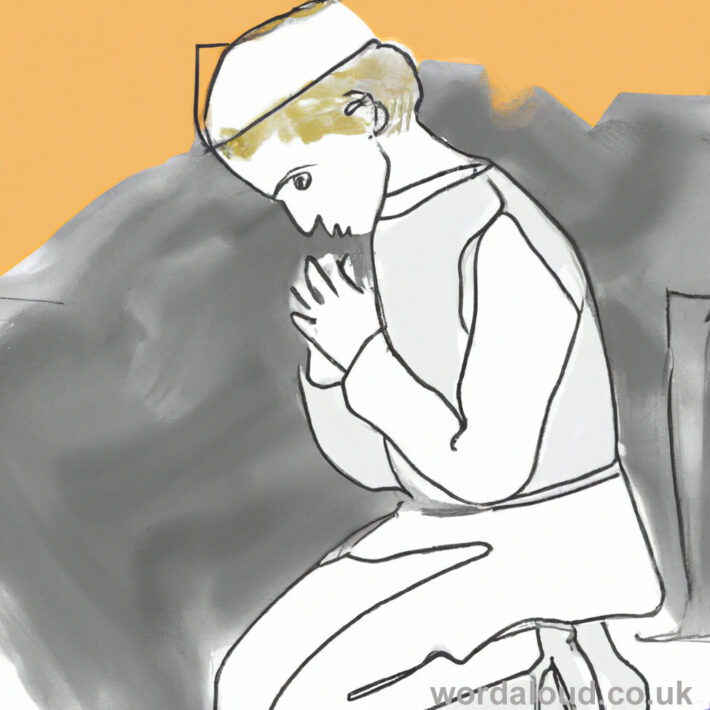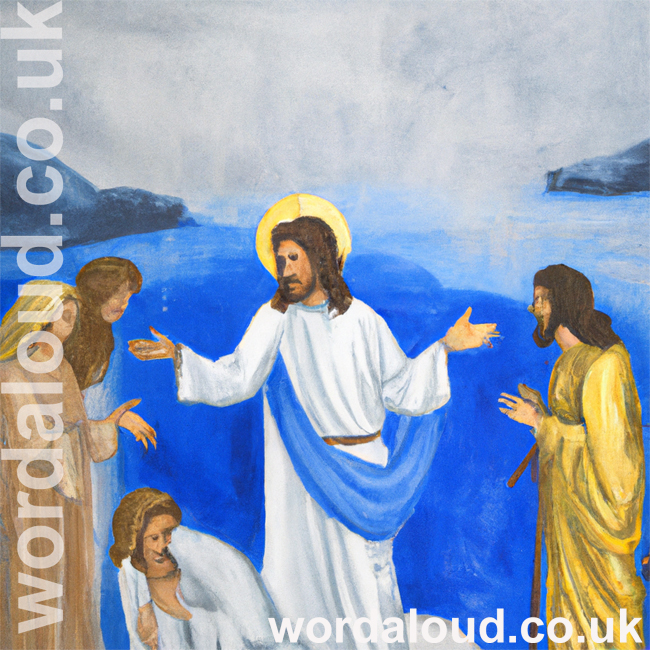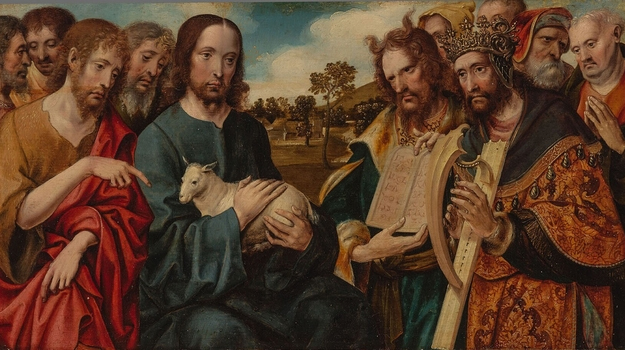Christian Art | Prayer With Jesus | Psalms | Judgement On The Deceitful | King David As A Boy | Audio Bible
Psalm 52 | King James Audio Bible
YouTube: Psalm 52 | KJV | King James Audio Bible | Word Aloud
Psalm 52 contemplates trust, righteousness, and the consequences of deceit. It paints a vivid contrast between the wicked and the righteous, reminding us of the enduring goodness of God.
The psalm begins with a question that challenges the boasting of those who revel in mischief and deceit. The psalm asserts that the goodness of God endures eternally. This sets the tone for a reflection on the enduring righteousness of the Divine.
The psalm describes actions of those who choose deceit and wickedness over righteousness. Imagery of a tongue that devises mischiefs and a deceitful razor-sharp tongue underscores treacherous nature of falsehood.
The psalmist goes on to highlight the preference of the wicked for evil over good and lying over speaking righteousness.
Consequences of such deceit are made clear. The psalm asserts that God will ultimately bring judgment, uprooting the deceitful and unrighteous from their dwelling places. Imagery of being plucked out of the land of the living is a stark reminder of consequences of choosing falsehood over integrity.
In contrast, the psalmist expresses the righteous, those who place their trust in God’s mercy and strength. Such are likened to green olive trees in the house of God, flourishing and enduring because of their reliance on divine goodness.
Psalm 52 concludes with declaration of praise and a commitment to wait upon God’s name, acknowledging the inherent goodness that resides in the Divine presence, and before and especially assembly of the saints.

Psalm 52 | King James Audio Bible KJV | Love Revealed By Jesus Christ
Why boastest thou thyself in mischief, O mighty man? The goodness of God endureth continually.
The tongue deviseth mischiefs; like a sharp razor, working deceitfully.
Thou lovest evil more than good; and lying rather than to speak righteousness. Selah.
Thou lovest all devouring words, O deceitful tongue.
God shall likewise destroy thee for ever, he shall take thee away, and pluck thee out of thy dwelling place, and root thee out of the land of the living. Selah.
The righteous also shall see, and fear, and shall laugh at him:
Lo, this is the man that made not God his strength; but trusted in the abundance of his riches, and strengthened himself in his wickedness.
But I am like a green olive tree in the house of God: I trust in the mercy of God for ever and ever.
I will praise thee for ever, because thou hast done it: and I will wait on thy name; for it is good before thy saints.
Key Themes Of The Psalm For Reflection | Love Revealed By Jesus Christ
- Trust in God’s Enduring Goodness: The psalm opens with a reflection on the everlasting goodness of God. It reminds us that regardless of the challenges and deceitfulness present in the world, God’s goodness remains constant and unwavering. This theme underscores the importance of placing trust in the divine even when faced with the deceit of others.
- Consequences of Deceit and Wickedness: The psalm paints a vivid picture of the consequences of deceit and wickedness. It uses striking imagery to describe the actions of those who choose falsehood and mischief. By highlighting the sharpness of a deceitful tongue, it emphasizes the destructive nature of dishonesty. This theme serves as a warning about the negative repercussions of living a life devoid of righteousness.
- Contrasting the Wicked and the Righteous: Psalm 52 draws a sharp contrast between the wicked and the righteous. It highlights the choices individuals make in their lives. The wicked are depicted as those who love evil more than good, whereas the righteous are those who choose to follow the path of truth and integrity. This theme underscores the moral choices we face daily and their consequences.
- The Treacherous Nature of Falsehood: The psalmist employs evocative language to emphasize the treacherous nature of falsehood. Comparing a deceitful tongue to a sharp razor highlights the harm that dishonesty can cause. This theme serves as a powerful reminder of the importance of truthfulness and transparency in our words and actions.
- God’s Judgment and Justice: The psalm acknowledges that God will ultimately bring judgment upon the wicked. It describes God as uprooting and destroying those who persist in deceit and wickedness. This theme reinforces the belief in divine justice and the idea that, in the end, righteousness will prevail.
- The Enduring Strength of the Righteous in God: Amidst the warnings and judgments, Psalm 52 offers a message of hope. The righteous, those who trust in God’s mercy and strength, are compared to green olive trees in the house of God. This imagery conveys the idea that those who align themselves with righteousness and God’s goodness will endure and flourish.
- A Call to Praise and Reliance on God’s Mercy and Goodness: The psalm concludes with a call to praise and a commitment to wait upon God’s name. It emphasizes the inherent goodness found in God’s presence, particularly in the assembly of the saints. This theme encourages us to express gratitude and worship to God for His unwavering goodness and to rely on His mercy in our lives.






